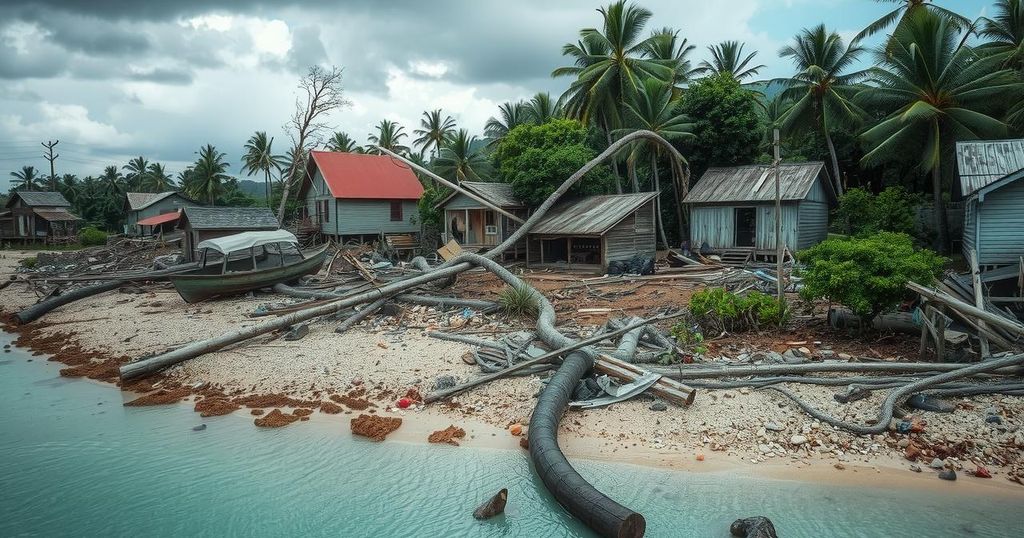World news
AFRICA, AGENCE FRANCE - PRESSE, COPERNICUS PROGRAM, DZAOUDZI, EMERGENCY RESPONSE, EUROPEAN COPERNICUS, FRENCH OVERSEAS DEPARTMENT, GRANDE - TERRE, INDIAN OCEAN, INTERIOR MINISTRY, MAMOUDZOU, MAXAR, MAYOTTE, MET, MÉTÉO - FRANCE, NATURAL DISASTER, NATURAL DISASTERS, PAMANDZI, PETITE - TERRE, POWER OUTAGES, ROUTE NATIONALE NO. 2
Sofia Rodriguez
0 Comments
Devastating Impact of Tropical Cyclone Chido on Mayotte
Tropical cyclone Chido struck Mayotte on December 14, causing extensive damage. Satellite imagery shows a significant impact on infrastructure, particularly in Mamoudzou, where many buildings were destroyed. The cyclone severely affected 70% of the population, with over 19,000 buildings and 105 km of roads damaged or destroyed.
On December 14, tropical cyclone Chido struck Mayotte, leaving a path of destruction in the French overseas territory located in the Indian Ocean. As four days have passed since the disaster, the French government is still assessing the human cost, with concerns that fatalities may reach into the hundreds. Satellite images released by Maxar through Agence France-Presse reveal extensive damage across the territory, particularly in Mamoudzou, the capital, where wind speeds surpassed 180 km/h, with gusts nearing 250 km/h in northern areas.
The cyclone primarily devastated the infrastructural aspects of the region, as buildings in Mamoudzou largely succumbed to the harsh winds. However, the industrial zones in the north displayed relatively better resilience but still sustained notable damage. Coastal areas also faced severe impacts; the marina along Route Nationale No. 2 was entirely engulfed by the storm and subsequent flooding.
Further east, on the island of Petite-Terre, the cyclone inflicted significant harm to towns such as Dzaoudzi and Pamandzi, with the port facilities in Dzaoudzi experiencing partial destruction. According to the Interior Ministry, approximately 70% of Mayotte’s population has been severely impacted by the cyclone. Moreover, the European Copernicus emergency service estimates that more than 19,000 buildings and 105 km of roads have been affected or obliterated by this catastrophic event.
Cyclone Chido represents a significant climatic event impacting the Indian Ocean territory of Mayotte, which is administratively linked to France. Positioned between Madagascar and the African mainland, Mayotte is often vulnerable to adverse weather patterns, particularly cyclones during the rainy season. This specific cyclone has raised alarming concerns regarding infrastructure resilience and community safety, bringing the attention of both local and international aid organizations.
In conclusion, cyclone Chido has wrought widespread destruction across Mayotte, affecting numerous residents and damaging significant infrastructure. The initial assessments suggest a high level of devastation, prompting a critical response from authorities and relief organizations. As recovery efforts begin, the focus will undoubtedly be on addressing the immediate needs of the affected populace while assessing the long-term implications of such natural disasters in the region.
Original Source: www.lemonde.fr




Post Comment